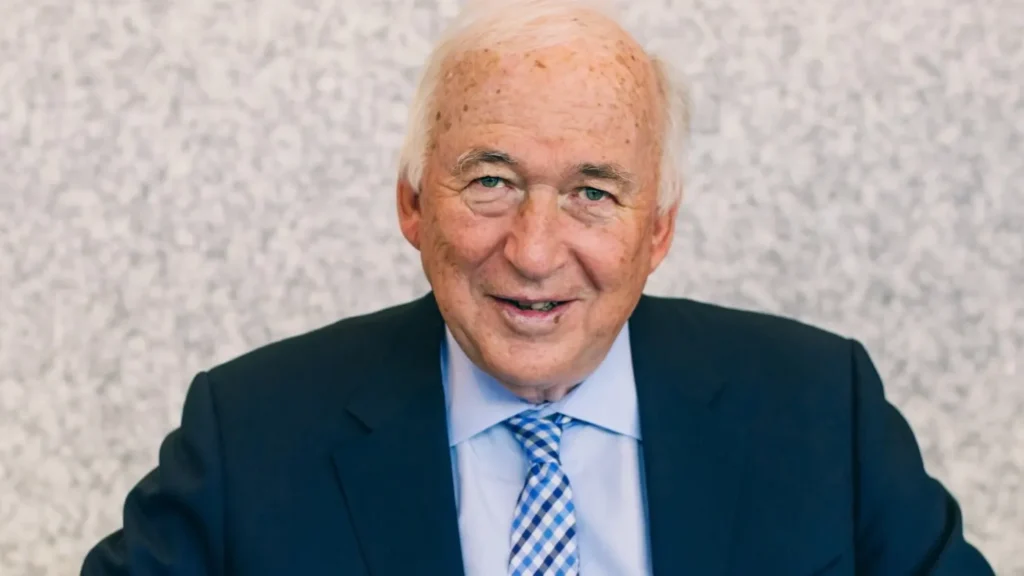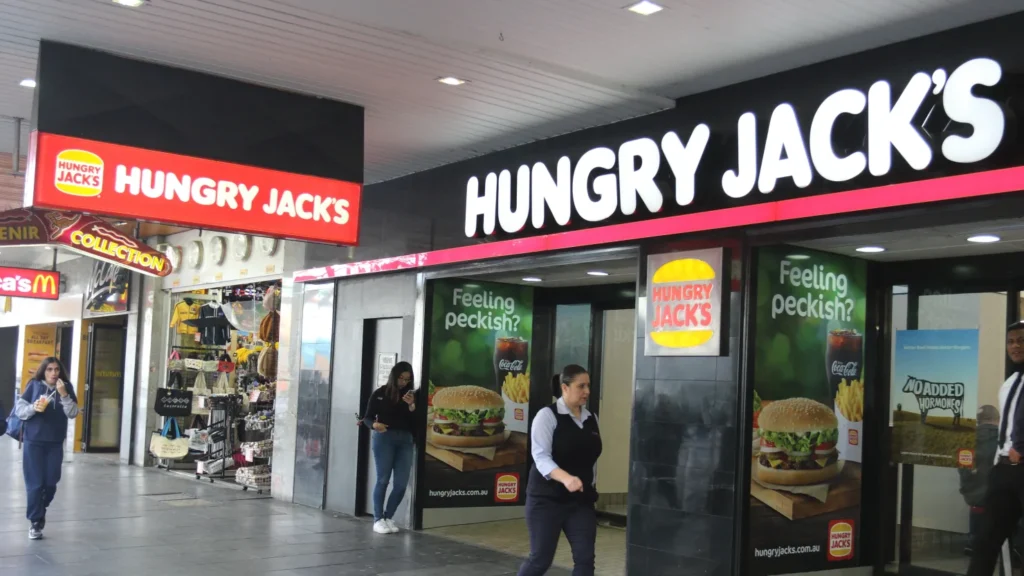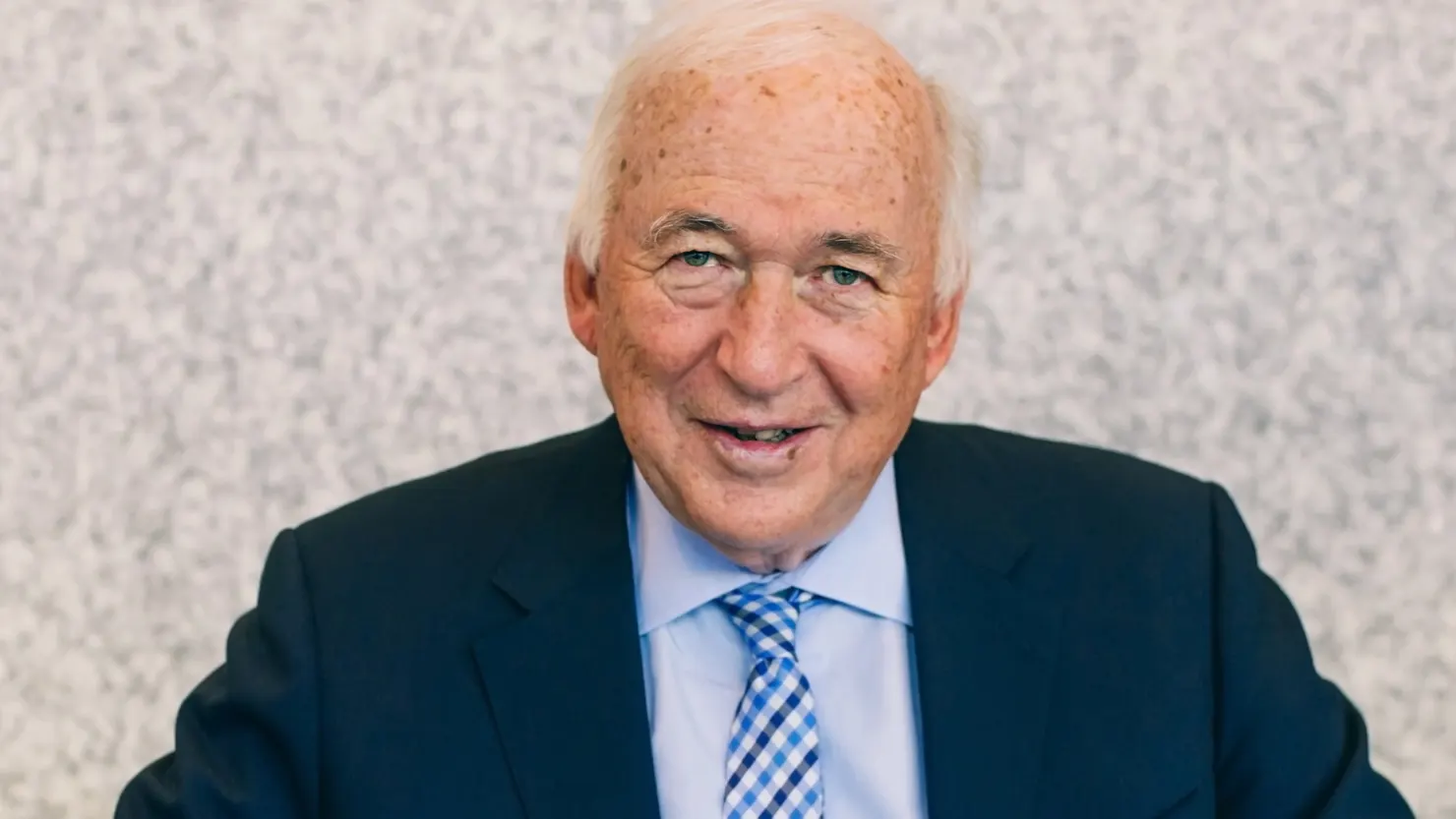He bought a KFC store in Australia for $100,000 in 1969. Today, his fast food company is worth over $3 billion

As a child, Jack Cowin shoveled snow, delivered newspapers, and sold Christmas cards for cash. By the time he was 20, it was hamburgers instead of cards. Fast forward to today: the 82-year-old is a billionaire thanks to his fast food empire.
Cowin is the founder and chairman of Competitive Foods Australia, the company that operates Burger King as “Hungry Jack’s” in Australia. He is also the largest shareholder in Domino’s Pizza in Australia and backs a plant-based meat substitute company called v2food.
Before founding Hungry Jack’s, Cowin opened a Kentucky Fried Chicken in Australia in 1969, the first of many. Then in 2013, it sold its 55-store KFC franchise in a deal valued at about $71 million, according to a Competitive Foods Australia representative.
Today, his business is worth more than $3 billion and generates more than $300 million a year, Cowin told CNBC Make It.
An enterprising kid
Growing up in Canada, Cowin realized early on that he wanted freedom in life. His father was an employee of Ford Motor Company and had to travel frequently for work.
And as a kid, I wanted to have the freedom to do what I wanted to do. I think I saw that relatively early, because [I saw that] dad’s on the treadmill of here, there and everywhere.
“One day he got a phone call: You’re going to Brazil, or you’re going to Mexico, or things like that… When you work for a big corporation, the corporation decides where you’re going to be, [and] what you’re going to do,” Cowin said. .
“And when I was a kid, I wanted to have the freedom to do whatever I wanted. “I think I saw it relatively early, because [I saw that] dad is on the treadmill here, there and everywhere,” he said. He did not want to be at the “whims and calls of a corporation.”
As a child, Cowin spent his time outside of school mowing lawns and delivering newspapers. “I never had to ask for money when I was a kid,” he said. “I was a salesman from a very young age, like when I was 8 or 10 years old.”
When college came around, Cowin went from farm to farm selling “trees, shrubs and breeding materials,” he said. He was so successful at this that he earned $8,000 a year, while his college professors earned only $5,000 a year, he said.
He graduated with a bachelor’s degree from the University of Western Ontario in 1964 and got a job selling life insurance, which he said he was very good at.
“He had a reputation as someone who could sell,” he said.
Striking gold Down Under
In the late 1960s, Cowin had begun settling in Canada with his wife and first child when one day he received a phone call from a pair of high school friends.
His friends had gotten a job at the American company Kentucky Fried Chicken and were sent to Australia to do market research on whether they should expand into the country.
At that stage of the game, the restaurant business in Australia was fish and chip shops, Chinese restaurants and fancy white tablecloth restaurants.
“Because my father had been there [for work] and I was the only one… who knew where Australia was on a map… they called me and said, ‘You should be here.’ You should come and see this.’ “Then, without warning, I’m on a plane and flying to Australia,” Cowin said.
Cowin landed in Australia in February 1969 and spent three weeks there helping his friends conduct research and eventually discovered that there was indeed a market for fast food in Australia.

“At that stage of the game, the restaurant business in Australia was fish and chip shops, Chinese restaurants and fine white tablecloth restaurants,” he said. Meanwhile, McDonald’s, Burger King, KFC and other fast food restaurants were gaining popularity in North America.
“So at the end of the three weeks, I pay $1,000 as a deposit for a Kentucky Fried Chicken franchise [and] if the American company is going to open one store, then I was going to have a 10-store franchise,” he said.
His ‘biggest break’ in life
Six months later, he received a phone call informing him that the American company KFC had agreed to expand to Australia and Cowin had the opportunity to own his first franchise. But he didn’t have the funds, so he started raising money.
The biggest break I’ve had in my life was … I got on my bike and I got 30 Canadians to lend me $10,000 each, so got $300,000.
Imagine this “kid walks into your office and says he wants to borrow $10,000, which is probably around $100,000 today or more… he has no experience in the business, he has no interest on your money… how long will it be before why they throw him out? from your office for wasting your time?
“The biggest opportunity I ever had in my life was… I got on my bike and I got 30 Canadians to lend me $10,000 each, so I got $300,000,” he said. “Otherwise I would still be shoveling snow in Canada. “I didn’t have the finances back then.”
In December 1969, Cowin moved with his family to Perth, Australia, where he opened his first KFC franchise. “It was like drilling for oil and finding oil in your first wildcat well, because it was a huge success,” he said.
“Then you open two more, you get into the hamburger business, you get into the pizza business, you get into the food manufacturing business, and today, that business is a $3 billion business and it generates $300 million. dollars a year.”
Today, Cowin owns 98% of his company, while the other 2% is in the hands of some of his original investors and shareholders, he said. “That original $10,000 is $40 million in book value [today]. So everyone got their money back and those who stayed did better and better,” he said.
When asked what his secret to sales is, he said: “I think the secret is that whatever you do, do it well…The people who lent me the money really supported me as an investment. “I was the investment.”
″And an expression [I have is] when you can’t tell the difference between work and play, you’re in the right place… I’ve never really worked a day in my life because I’ve enjoyed it. “
Correction: This story has been updated to make clear that Jack Cowin opened a KFC store in Australia in 1969.
Do you want to earn extra money outside of your daily job? Sign up for CNBC’s online course How to Earn Passive Income Online to learn common passive income sources, tips for getting started, and real-life success stories.
Plus, sign up for CNBC’s Make It newsletter to get tips and tricks for success at work, in money, and in life.


0 Comment